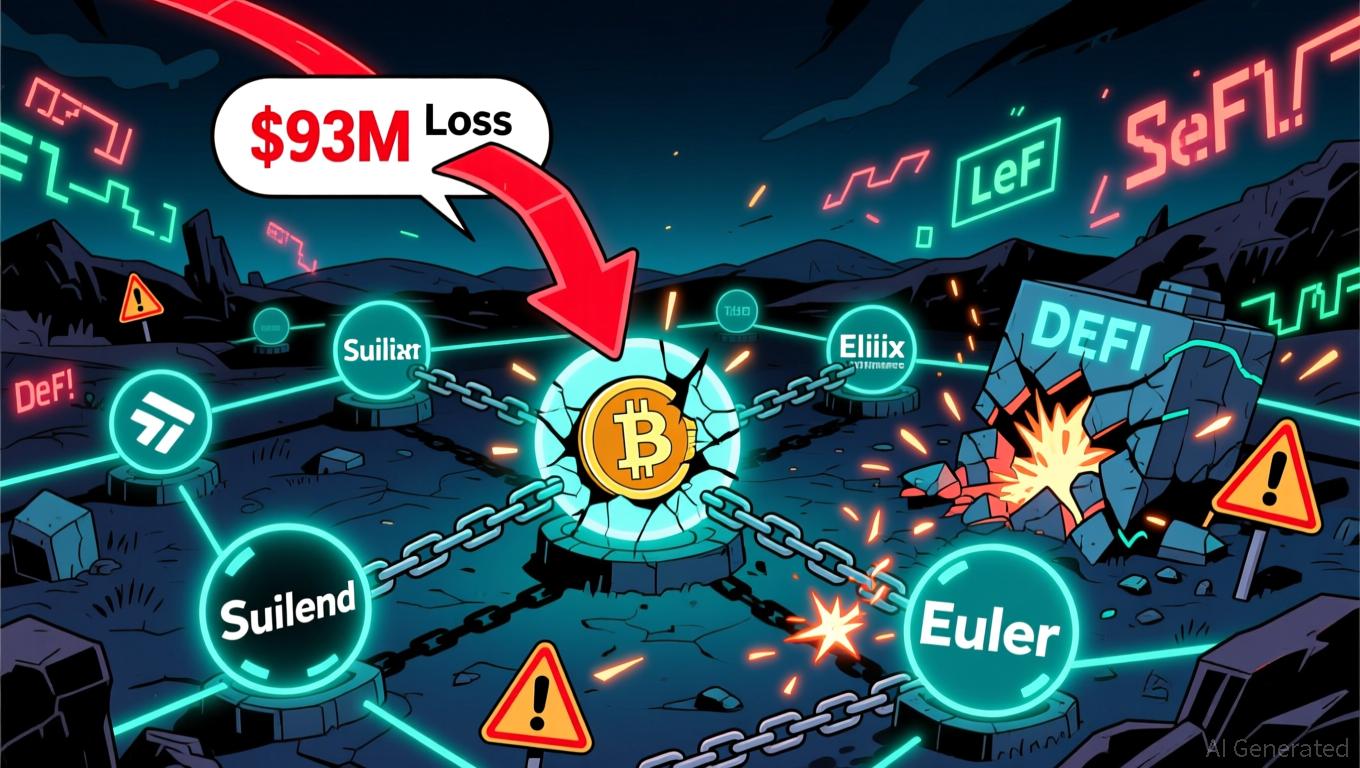Global authorities adjust cryptocurrency regulations to strike a balance between fostering innovation and maintaining stability
- Global regulators are adjusting crypto frameworks to balance innovation and risk management, with Hong Kong, Switzerland, Brazil, and the EU implementing new measures. - Hong Kong’s SFC allows local exchanges to access global liquidity pools but faces low adoption compared to India and Japan. - Switzerland’s AMINA secures EU MiCA compliance, highlighting maturing markets amid calls for stricter oversight. - Brazil’s 30% tax on undeclared crypto aims to formalize the sector but risks burdening small inves
Regulators worldwide are adjusting their approaches to cryptocurrency oversight as financial institutions and lawmakers strive to encourage innovation while managing associated risks. Recent policy shifts in Hong Kong, Switzerland, Brazil, and the European Union highlight the dynamic nature of crypto regulation. The Securities and Futures Commission (SFC) in Hong Kong has rolled out new guidelines that permit domestic crypto exchanges to tap into international liquidity pools, an effort designed to establish the
Elsewhere, Swiss crypto bank AMINA has obtained

In Brazil, a proposed 30% tax on undisclosed crypto holdings has sparked political controversy.
On the global stage, authorities are also reassessing capital rules for banks dealing with digital assets. The Basel Committee on Banking Supervision is
Enforcement remains active, with Australian authorities recently
The trend toward balanced regulation is clear across different regions, as seen in Hong Kong’s liquidity measures, Brazil’s tax initiatives, and the EU’s MiCA rules—all aiming to support innovation while safeguarding financial stability.
Disclaimer: The content of this article solely reflects the author's opinion and does not represent the platform in any capacity. This article is not intended to serve as a reference for making investment decisions.
You may also like
Bitcoin News Today: Is Bitcoin’s Recent Sell-Off Driven by Corporate Debt Reduction or Market Manipulation?
- Bitcoin fell below $100,000 on Nov. 4, 2025, with $1.3B in liquidations as whales and firms like Sequans sold BTC to reduce debt. - Analysts argue sellers may amplify bearish narratives via social media to profit from lower prices, while corporate treasury strategies face risks amid falling prices. - On-chain data shows moderate unrealized losses (3.1% stress level), suggesting potential stabilization, though some warn a $56,000 cascade could follow a $100,000 break. - Diverging strategies emerge: Americ

"Study Reveals 25% of Polymarket's Trading Volume is Artificial Due to Ghost Trades"
- Columbia University study reveals 25% of Polymarket's trading volume may involve wash trading, where users self-trade to inflate activity. - Sports and election markets showed highest manipulation rates (45% and 17% fake volume), peaking at 95% in election markets in March 2025. - Platform's lack of transaction fees and pseudonymous wallets enabled manipulation, despite CFTC regulatory actions since 2022. - Researchers urge Polymarket to adopt their detection methods to exclude fraudulent wallets and res

DeFi's Inherent Risks Prompt a Governance Overhaul
- Curve community proposes halting CRV token emissions to Elixir pools amid deUSD collapse linked to Stream Finance's $93M loss. - Elixir's synthetic stablecoin lost 98% value after 65% collateral tied to Stream's devalued xUSD, triggering liquidity freezes and legal disputes. - DeFi platforms like Suilend and Euler forced debt repayments while Stream's 90% deUSD control blocks resolution, exposing systemic governance flaws. - Industry warns interconnected stablecoins and opaque fund managers pose $3.1B an

PENGU's $0.015 Level Ignites Recovery Optimism Despite Persistent Derivatives Short Pressure
- Pudgy Penguins (PENGU) token fell 22% to $0.01589 amid altcoin weakness but shows potential rebound near $0.015 support level via TD Sequential buy signals. - Derivatives data reveals $7.68M in short positions at $0.01579, yet improving volume delta (-$64M) and MACD green signals suggest waning bearish momentum. - Long-term fundamentals remain bearish with CoinCodex predicting 25% decline to $0.01193 by December 2025, while TD Bank's branch closures highlight shifting financial sector dynamics. - Institu
